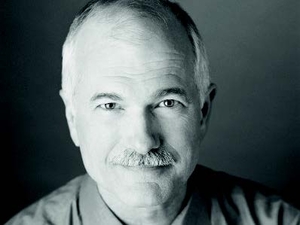“If I’ve tried to bring anything to federal politics, it’s the idea that hope and optimism should be at their heart; we can look after each other better than we do today.”
— Jack Layton
There can be no argument that Jack Layton built a place in history. “Bon Jack”, was today’s NDP.
A cheerful political warrior, Layton’s always positive, often too sunny demeanour resonated with many. In the recent federal election Quebecers felt, because of Jack, that the NDP was a comfortable pace to park their votes and propelled him into the Opposition leader’s seat. And this year, many Ontario Liberals abandoned their leader to become, at least for one election, “Layton Liberals.”
John Gilbert Layton was born in Hudson, July 18, 1950. His street French was colloquial and his syntax often faulty, but he could communicate in both languages and won the admiration of many a Blocquiste.
The most succinct eulogy among the many being voiced, perhaps came from former Bloc MP Serge Menard: “Layton was never a demagogue, he was very authentic,” said Menard. “He really loved Quebec, and the difference there is in Quebec from the rest of Canada. He saw a richness. At the beginning he was criticized for being too jovialiste. You know what? He was jovial, but he was also profound.”
 Jack Layton was an unlikely socialist. His grandfather, Gilbert Layton, was a National Union cabinet minister in Maurice Duplessis’ government; his father, Robert, was a Progressive Conservative cabinet minister in Brian Mulroney’s government.
Jack Layton was an unlikely socialist. His grandfather, Gilbert Layton, was a National Union cabinet minister in Maurice Duplessis’ government; his father, Robert, was a Progressive Conservative cabinet minister in Brian Mulroney’s government.
It was McGill philosopher Charles Taylor who brought Layton to the NDP right after Pierre Trudeau brought down the War Measures Act.
“Tommy Douglas (the NDP’s founding leader) summed it up well when he said that we can make a better world collectively, and that our individuality can flourish in the context of projects we can work on together,” Layton said, “These are the values I’d been raised by my parents to believe in, but I hadn’t nailed down the political thinking behind them until I met Taylor. He is the one who laid out a concept of liberty that I found very powerful.”
Layton moved to Toronto in 1970, obtained a Ph.D. from York University, and was elected to Toronto city council in 1982. In 2003 he became the leader of the NDP, the party’s most successful in its 50-year history.
With his death the nagging question is can the New Democrats continue as a potent political force? Can the NDP survive without him, or was his dramatic rise a fluke?
His body is expected to lay in state on Parliament Hill before the funeral in Toronto on Saturday.
Layton leaves two children from his first marriage to Sally Halford, whom he divorced after 14 years, and his now widow, MP Olivia Chow, whom he married in 1988.

























Commentaires
Veuillez vous connecter pour poster des commentaires.